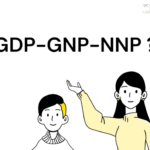Labour law reforms are an ongoing and continuous process and the Government has been introducing new laws and amending the existing ones in response to the emerging needs of the workers in a constantly dynamic economic environment.
The Second National Commission on Labour, which submitted its report in June 2002 had recommended that the existing set of labour laws should be broadly amalgamated into the following groups, namely
The Labour Code is a means to consolidate various statutes into a pruned and uncomplicated form. The amalgamated form of multiple statutes thus obtained is called a labour code. This operation is done with a view to having a unified law that can be understood and implemented with ease.
The Code on Wages, 2019 has been passed by both Houses of the Parliament and assented to by the President on 08.08.2019. The other three Labour Codes such as Code on Social Security, 2020, Industrial Relations Code, 2020 and Occupational Safety, Health and Working Conditions Code, 2020 received the assent of the President on 28th September 2020.
TABLE OF CONTENT
- Industrial Relation: Definitions, Scope, Objectives, Types & Characteristics
- Approaches to Industrial Relations – Theoretical Approaches to Industrial Relations by Different Scholars
- Evolution of Industrial Relation
- Constitutional Provisions in Industrial Relations
- Code on Wages
- Industrial Relations Code, 2020
- Occupational Safety, Health & Working Conditions Code, 2020
- Code on Social Security, 2020
ORGANISATION
ORGANISATION:- Organisation consists of a group of people coming together to achieve a common objective through coordinated action. In any business organisation, capitalist(owner/management) wants to maximize profits while workers want to maximize their wages. An increase in wages of workers would lead to a reduction of profit for the owner. This could become a reason for conflict between the two.
Also, other causes of conflict could be high working hours, poor conditions of work, participation in management etc. For the efficient functioning of the organisation, it is important to maintain cordial relations. Hence, the study of industrial relations becomes of utmost importance. It seeks to ensure the betterment of both- workers as well as owner/management.
INDUSTRIAL RELATIONS:- Industrial relations consist of all the relations and interactions in the industry particularly between the labour and management. These relations and interactions are the results of their composite attitudes and approaches regarding the management of the affairs of the industry. Good industrial relations lead to increased productivity, labour peace, maximising social welfare, industrial and economic development, and industrial democracy.
Industries having poor industrial relations face increased labour turnover and absenteeism, growing indiscipline, strike and walkouts, deterioration of quality of goods and strained labour-management relations.
Industrial Relation: Definitions, Scope, Objectives, Types & Characteristics
According to V. Agnihotri, “The term industrial relations explains the relationship between employees and management which stem directly or indirectly from union employer relationship.” This definition takes a narrower view of industrial relations and is concerned with only management and employees. However, Industrial relations are affected by other factors as well e.g., governmental policies, economic structure etc. A wider definition is given by T.N. Kapoor – “The term ‘Industrial Relations’ should be understood in the sense of labour- management relations as it percolates into a wider set of relationships touching extensively all aspects of labour such as union-policies, personnel policies and practices including wages, welfare and social security, service conditions, supervision and communication, collective bargaining etc., attitudes of parties and governmental action on labour matter.














